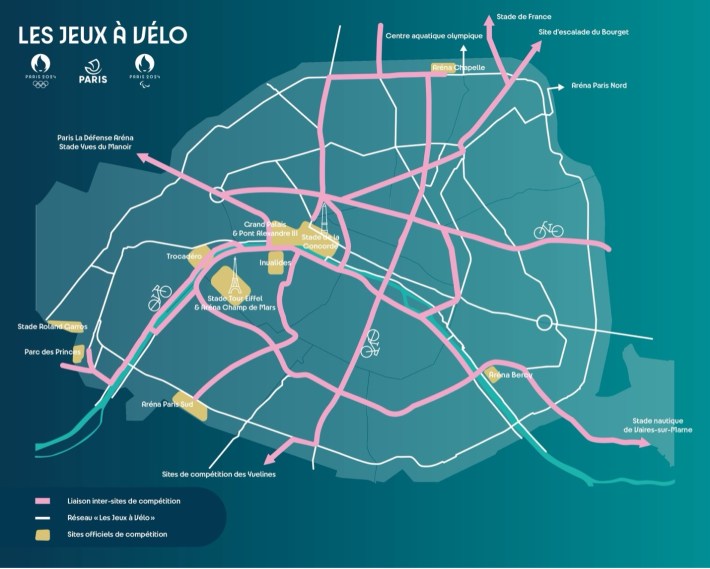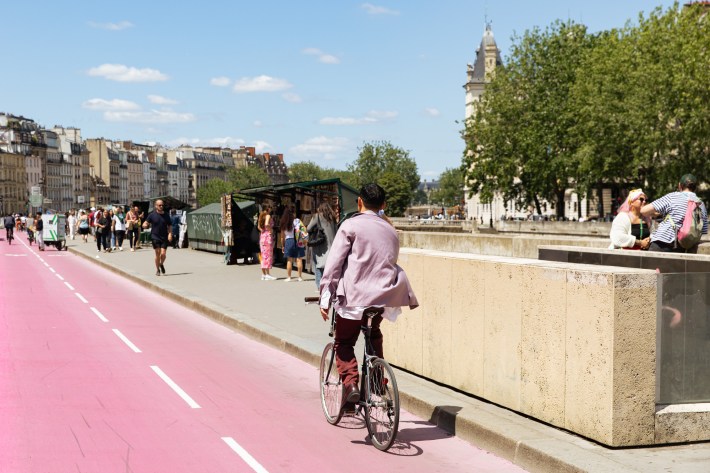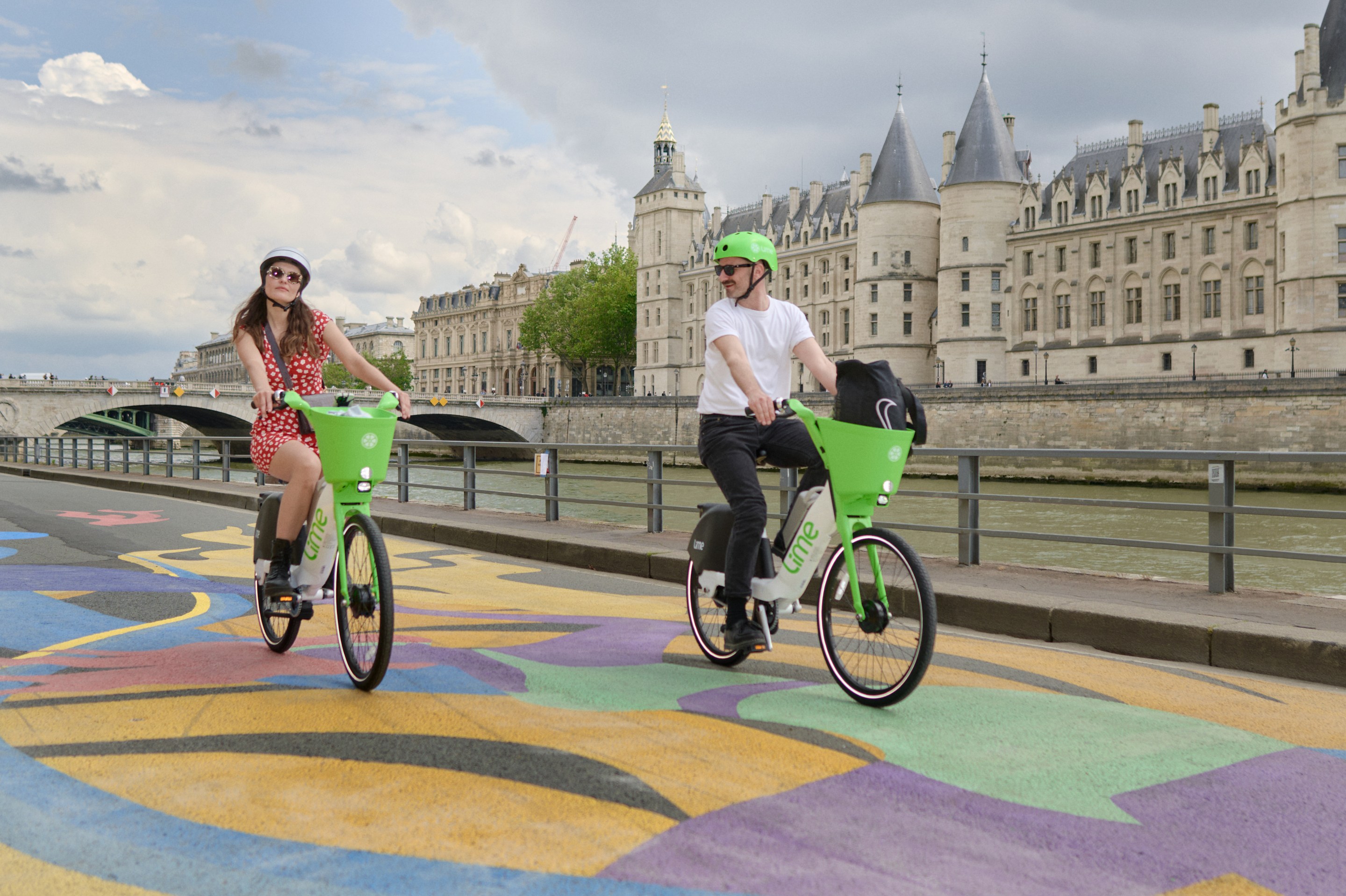Paris is primed for a flood of visitors for the Olympic Games — and if early data is any indication, a whole lot of them will be traveling on two wheels.
According to micromobility provider Lime, shared bike trips across the company’s Paris fleet already soared 88 percent in January compared to the same month the year prior, thanks in large part to the city’s early investments in protected bike lanes leading up to the summer Olympic Games.

Known locally as “olympistes” — a portmanteau of “Olympics” and the French word for “track,” as in cycle track — transportation officials in the City of Light have since completed a network of more than 37 miles of permanent protected paths connecting all the competition sites for the games, 18 miles of which are new.
They even painted them pink to help visitors know which ones lead to Olympic sites.
City officials also added 10,000 bike racks to help riders to lock up when they arrive at an Olympic event, and announced plans to redistribute those racks throughout the city after the games are over.
Shared micromobility providers, meanwhile, have deployed thousands of new vehicles on the streets, with Lime officials reporting that they’ve increased their total number of bikes by 50 percent and launched a public awareness campaign about safe riding during the games. (Paris famously banned scooters last year, a move that was criticized by some sustainable transportation advocates.)
City officials hope all those investments will help residents withstand a projected influx of 10 million visitors, who might otherwise overwhelm their world-famous Metro and clog their streets with cars. And some are hoping Paris’s approach will set an example for the 206 countries who will soon arrive at its door.
“This is their signature moment; the whole world’s eyes are going to be on them,” said Shari Shapiro, Lime’s head of Global Policy. “And they took this opportunity to say, ‘This is going to be a bikable event.’”

Shapiro acknowledges that Paris’s big “olympiste” moment wouldn’t have been possible if transportation officials hadn’t already been working towards becoming 100 percent bikeable by 2024, thanks to a $290 million plan to expand bike-friendly policy and infrastructure throughout the French capital.
The summer games, though, acted as potent motivator to get the work done on a deadline — and a serious opportunity to build support for bikes around the world.
“These events are catalysts for changes of habit,” Shapiro explains. “When people travel, they tend to try new things … and then take that back [home] with them. And so the investment that Paris has made — and the investment that Olympic cities like L.A. and Brisbane and Milan can make — not only will that have a ripple effect [in the host city], but as the international visitors and participants go back to their own cities, they’ll demand better bike infrastructure, and they’ll use bikes and scooters more.”
Shapiro stresses that big sporting events like the Olympics aren’t the only ones that can catalyze transportation change — if communities embrace the opportunity to get people out of cars. Host cities for Taylor Swift’s “Eras” tour, for instance, reported a 33-percent uptick in year-over-year Lime rides when the megastar came to town, while European cities that hosted Beyoncé’s “Renaissance” tour reported a 143-percent uptick thanks to the Bey Hive.
She also argues that even the most car-crazy residents and visitors often change their traveling behavior around big events, at least when it’s clear that sustainable modes are a real option — especially if cities have laid the groundwork to make them a truly great one.
“I am not at all concerned that people will embrace [micromobility] in an event like this,” she added. “We have seen similar outcomes in things like the Super Bowl — we’ve served three Super Bowls at this point — and the [NFL] draft in Detroit; people use [shared bikes and scooters] in enormous numbers at these events.”
Shapiro says Lime will be watching closely to see how Paris keeps moving as the games gear up. Soon-to-be Olympic host cities Los Angeles and Salt Like City should, too – and so should every U.S. city that wants to compete on the global stage.
The post The Paris Plan for Olympic Traffic? Build More Bike Lanes appeared first on Streetsblog California.






